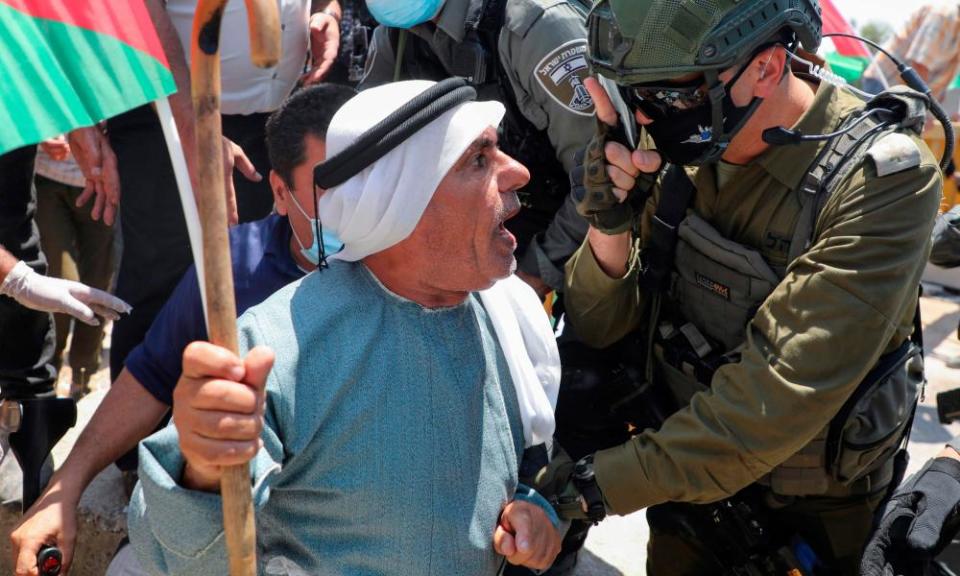The Guardian view on Israel and apartheid: prophecy or description?

It was a deliberate provocation by B’Tselem, Israel’s largest human rights group, to describe the Palestinians in the Holy Land as living under an apartheid regime. Many Israelis detest the idea that their country, one they see as a democracy that rose from a genocidal pyre, could be compared to the old racist Afrikaner regime. Yet figures such as Desmond Tutu and Jimmy Carter have done so.
There is a serious argument about injustices to be had. Palestinians – unlike Israeli Jews – live under a fragmented mosaic of laws, often discriminatory, and public authorities which seem indifferent to their plight. Apartheid is a crime against humanity. It is a charge that should not be lightly made, for else it can be shrugged off. Some might agree with the use of such incendiary language, but many will recoil. The crime of apartheid has been defined as “inhumane acts committed in the context of a regime of systematic oppression and domination by one racial group over any other racial group or groups with the intention of maintaining that regime”.
There are nearly 5 million Palestinians in the West Bank and Gaza, all without Israeli citizenship. In the West Bank, Palestinians are bereft of civil rights, while Israelis in the occupied territory enjoy the full support of the state. Hamas won Gaza’s election in 2006, but the blockade that Israel imposes means it is in charge. Egypt has sealed its border, but nothing and nobody can get in or out without Israeli permission. Meeting the needs of Gaza’s growing population, say relief agencies, is at the whim of Israel. About 300,000 Palestinians in the areas formally annexed in 1967 – East Jerusalem and surrounding villages – do not have full citizenship and equal rights. Last year, the Israeli NGO Yesh Din found that Israeli officials were culpable of the crime of apartheid in the West Bank. Such a finding can only be a tragedy for all, including this newspaper, who wish the state of Israel well.
B’Tselem argues that Palestinians are afforded various levels of rights depending on where they live, but always below Jewish people. The group says it is becoming impossible to insulate Israel from its prolonged occupation project, leading it to run an apartheid regime not just outside its sovereign territory but inside it. There are about 2 million Palestinian citizens of Israel, a minority under pressure not to antagonise the Jewish majority. Within Israel, discriminatory policies are not difficult to find. National security is invoked to justify often racist citizenship laws. Jewish-only communities have admission committees that can legally reject Palestinians on the grounds of “cultural incompatibility”. A web of land and planning laws squeeze Palestinians into a shrinking space. There are Israeli Arabs whose prominence in society belies the poverty of the majority.
Israel has a problem of historic discrimination. But under Benjamin Netanyahu’s government there has been the enactment of the nation state law that constitutionally enshrines Jewish supremacy and a plan to formally annex parts of the West Bank. Some prominent Jewish intellectuals, such as the writer Peter Beinart, have given up on the idea of a Jewish state. No government formed after the forthcoming election will support genuine Palestinian statehood or have a viable peace plan.
This begs B’Tselem’s heretical question: what if there is only, in reality, one regime between the Jordan River and the Mediterranean Sea, rather than one political power that controls the territory in which there are distinct regimes? A system of separate and unequal law and systemic discrimination against Palestinians has been justified because it was meant to be temporary. But decades have passed and the situation worsens. If this is a twilight for democracy and equality in the Holy Land, one can only hope that the night will be short.

 Yahoo Finance
Yahoo Finance 